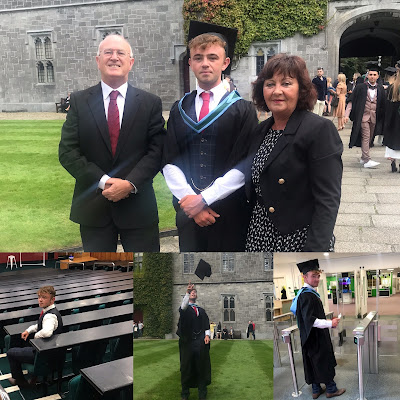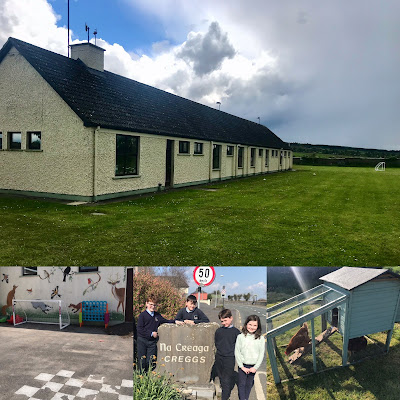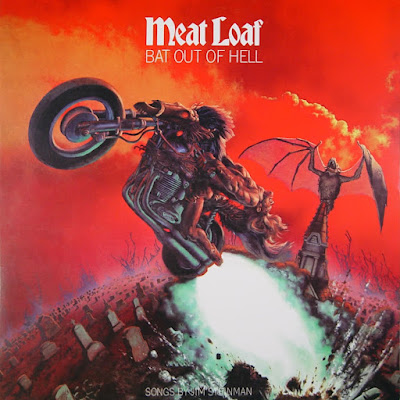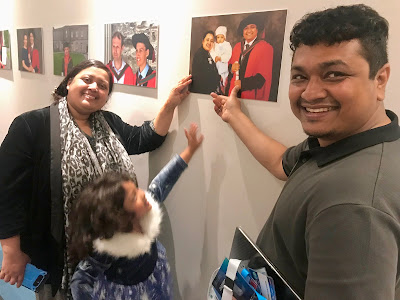In these early months of the current school year I have already provided, as part of my work at the Insight SFI Research Centre for Data Analytics of the University of Galway, Internet Safety sessions to parents, teachers and the young people of both primary and secondary schools in counties Galway, Clare and Dublin.
I have been
undertaking Cyberbullying Awareness presentations since 2005 and was probably
one of the first people in Ireland to do so.
(photo is of a leaflet from 2008 prepared by the primary school in Newport co. Mayo for a talk to parents on my birthday! The content reflects the era).
Since my student college days, I have been a strong advocate of the benefits that digital technologies can bring to people from all walks of life, having spent much of my working life teaching coding and upskilling people in the use of digital technologies. I started doing so in late 1981 soon after leaving university thanks to great inspirational visionary people such as Dr Jimmy Browne.
Immersing myself in web technologies really took off for me in mid 2004 when I became employed as the Outreach Officer of the Digital Enterprise Research Institute (DERI) at what was then NUI Galway. It was when the World Wide Web was for the first time becoming populated with user-generated content. It was exciting to be part of this!
In the early 2000s ‘blogging’ (personal websites) was the new craze; ‘online social media’ in the form of Bebo(2005), MySpace(2003) and Orkut(2004) was starting to appear for the first time; YouTube had just been invented (April 2005); online messaging and video telephony in the form of Skype (2003-4) was capturing people’s imagination; broadband was only being rolled out nationwide; the big bulky desktop computer was the main technology device in business, school and at home; and the smart touch phone in the form of the iPhone had yet to be invented(2007). ‘Email’ was king with many people of all ages acquiring their very first email addresses around this time.
Yet as a parent of both pre-teen and young teenage boys, I could see the dangers that computer gaming and web-based social interaction sites could and were bringing into our young people’s lives. Violence-based gaming, online aggressive pornography, misogyny, racism, cyberbullying, online stalking, and subsequent addiction and mental health issues for many users were a feature of the web even in those early days. People of all ages were suffering and yet there were few rules or guidelines available and nobody was talking about these new but growing problems.
So as a concerned parent and as someone working in a university web scientific institute (DERI), I decided, after securing the very supportive permission of my manager/directors, to put together my own content for delivering pioneering Internet Safety sessions to schools, universities, communities (neighbourhoods, asylum seekers, disability groups). But I always included in these talks (and still do) the benefits of new web technologies, giving a series of examples of exciting new developments especially those invented by young people, the need for stronger government legislation to protect those online including in punishing the very wealthy service providers, and highlighting the importance of good old fashioned benign parenting with the proviso that they make the effort to become aware and knowledgeable of their children’s activities on the web.
Eighteen years later, I am still providing such talks and workshops across Ireland. But sadly I have lost one important resource along the way. Over the years after having ‘the big chat’ with my sons when they were in their pre-teens or early teens and keeping lines of communications open, I learnt more from them that they ever did from me on the strengths, weaknesses, stories, pitfalls and issues associated with the latest social media and gaming sites popular for young people. I used the knowledge gained from them to make my own Internet Safety sessions more powerful, more meaningful, more current. Now that my sons are in their 20s and 30s I no longer have that family resource to call upon.
So I have to make extra effort to see the Web through the eyes of a child. For in the world of technology, change is constant and one has to keep one’s finger on what is popular today as it becomes history tomorrow.















